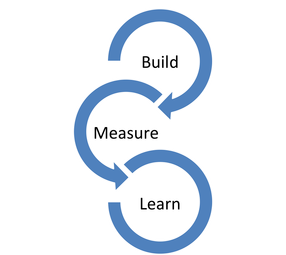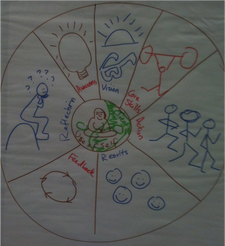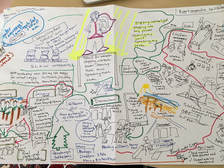Mission: Impact podcast & blog
Build a better world without becoming a martyr to your nonprofit cause
Listen on:
 An influential volunteer has an idea within your nonprofit organization. They just came back from a conference and heard about an initiative another organization is doing. They think it would be perfect for your organization. When they describe the idea it sounds really intriguing. There is revenue potential and it promises to more fully engage your constituents. Your board and/or senior staff have a conversation about the idea and decide a staff person should put together a business plan. The staff person works on it and the projections look really promising. A staff team is pulled together and their other projects are put on the back burner. As the initiative gets closer to launch, a communications and marketing plan is put together. The initiative launches with lots of internal fan fare. And then…. What went wrong? Crickets. Very few people enroll. Internal discussion concludes that it must be the messaging. Marketing messages are tweaked and a new set of email blasts are designed and scheduled. But interest and enrollment remain low. What went wrong? Lean Start Up The lean start up approach is designed to address this common problem. People falling in love with their own ideas, settling on a wonderful sounding solution without really understanding the problem they are solving for the members or constituents they are trying to serve. Eric Ries created the method with the intent to shift entrepreneurs energy from developing elaborate business plans to ‘getting out of the building” and testing their assumptions with customers. Because it focuses on managing risk and conserving resources it is a good fit for resource poor nonprofits. Build, Measure, Learn  Lean start up helps you answer the question – how do we know what is actually worth working on? Based on three major steps – build, measure, learn, you create a minimally viable product instead of a business plan; identify assumptions by asking the question – what needs to be true for this to be a good idea and then design brief experiments to test these assumptions. Once the experiments are complete and you assess your results and learn from it. Does the evidence point to continuing with your idea as is? Or do you need to pivot? Or do you perhaps need to drop the idea and not expend any further resources on it? Experiments In the example above, instead of proceeding with a business plan and then immediately into launching a project team to build out the idea, the team would instead identify the assumptions inherent in the idea and then design experiments to test these assumptions with customers. Unearthing Your Assumptions Where traditional program design approaches have emphasized careful and lengthy planning, lean start up emphasizes experiments. In the past, new ideas were often based on intuition and anecdotes. Unfortunately these hunches were rarely tested with the audience they were designed for. Instead lean start up moves from an idea to gathering feedback almost immediately. Like the example at the beginning, many organizations have emphasized the ‘big launch’ after a closed or even secret design process. Lean start up focuses on the iterative process – getting feedback quickly and learning from it.
Think this might be a good approach for your organization and want to learn more? Get in touch with me for a complementary coaching session. The new year is often a time that nonprofit professionals step back and think about where they are in life. This is a good time to look back and think about what the year has brought you, what you have learned, what you have achieved. And what your hopes, dreams and intentions are for the coming year. Developing a Practice I have a weekly reflection practice that I developed and have practiced over the past five years. It gives me rich material to review at the beginning of the year to answer those questions. This practice came out of my experience at graduate school. I consider myself a life long learner. Yet the reflection we had to write after writing every paper was the bane of my existence. Too often I wrote it in the last 20 minutes before the submission midnight deadline. Deep reflections they were not. Reflection mandala My graduate cohort was prepping to go on our international residency to South Africa. We were discussing what would support us as we worked with our clients. Through a variety of visioning exercises, we culled our conversation into a few key concepts:
I saw these as all interrelated and remembered David Sibbet’s work on visual meetings and how mandalas demonstrate unity and holistic thinking. I then built on a set of daily reflection questions I had come across, adapting it and using these major topics as a framework. Download the tool for your own use. Adding a layerI began using it regularly through my work to set intentions as well as observe what I was learning as I went along. Because it is structured and now a regular practice, it makes reflection do-able for this reluctant reflector. With this habit established, I then added another layer. At the six-month and year-end mark, I review my weekly reflections and look for insights and themes. I use different categories on large 11” x 17” paper to capture what strikes me as I review what I have written. These are:
Seeing the patterns Even though I am no artist, I have also sketched the journey of the year. What were the twists and turns? Ups and downs? Significant events and memories? How did the year feel? What have I learned? And what will I do as a result of that learning? With that in mind, what is my vision for the week ahead, months ahead, year ahead. What is yours? Need help getting started? Get in touch with me for a complementary coaching session that can help you reflect on where you are and what your intentions are for the year.
|
Categories
All
Archives
July 2024

Grace Social Sector Consulting, LLC, owns the copyright in and to all content in and transcripts of the Mission: Impact podcast, as well as the Mission: Impact blog with all rights reserved, including right of publicity.
|
Telephone301-857-9335
|
info[at]gracesocialsector.com
|
Grace Social Sector Consulting, LLC, owns the copyright in and to all content in, including transcripts and audio of the Mission: Impact podcast and all content on this website, with all rights reserved, including right of publicity.
|